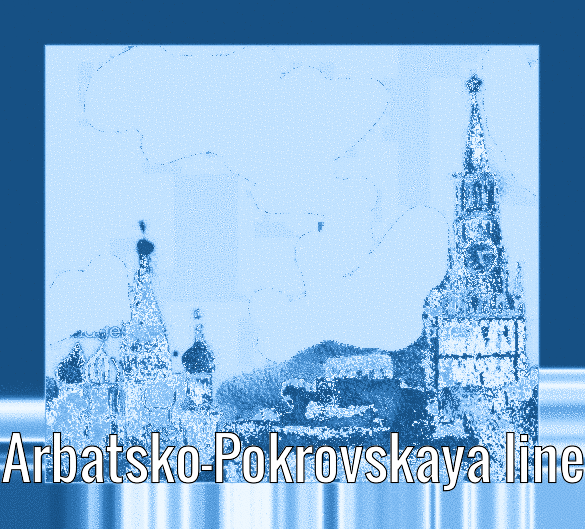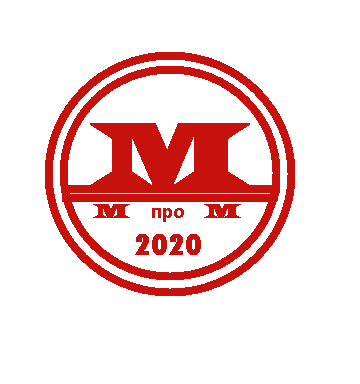
The Arbatsko–Pokrovskaya line (Russian: Арба́тско-Покро́вская ли́ния, IPA: [ɐrˈbatskə pɐˈkrofskəjə ˈlʲinʲɪjə]) (Line 3) is one of the lines of the Moscow Metro. Chronologically the second to open, it connects the Mitino District and the town of Krasnogorsk to the northwest of Moscow with the eastern suburbs of the Russian capital passing through the city centre. There are 22 stations on the line, which is 45.1 kilometres (28.0 mi) long, making it the longest line of the system.
The history of this west-east line is one of the more complicated of the Moscow Metro, and is partly due to the politics, namely constant changes of priorities. In 1935, when the first stage opened, a branch of the existing line ran from Okhotny Ryad to the Smolenskaya Square on the Garden Ring. The branch was extended to the Kiyevsky railway station in 1937.
In 1938 the branch was split into a separate line, and a 3.2 kilometres (2.0 mi) stretch connecting Alexander Garden and the Kursky railway station opened. Despite the outbreak of World War II, the construction of the metro continued, and in 1944 three stations of the Pokrovsky radius were completed.
The eastern part of the line was extended three times, one extension being to the Pervomayskaya temporary station inside a newly opened depot. It was replaced in 1961 by the Izmaylovsky Park, Izmaylovskaya and the Pervomayskaya stations. These three stations demonstrated a change of design priorities was straying away from Stalinist architecture to the new minimalism centipede designs supported under Nikita Khrushchev‘s leadership. The line reached its present eastern terminus in 1963 with an extension to Shchyolkovskaya.
The western end of the line has a much more complicated history. Though first stations of the west end were built below the surface, given their importance in the centre of Moscow and the threat of a Nuclear War it was considered that these existing stations would be useless as bomb shelters. So, to solve this problem, it was decided to build parallel deep level sections for each station and close the older stations. The new deeper part of the line was opened in 1953.
The line was planned to be extended west to the District of Fili, but yet another policy change led to that extension not being built. Nikita Khrushchev was impressed by an extensive network of surface-level stations during his visit to the United States. Because of that, he promoted the idea of building the Filoyvsky Radius on the surface rather than underground. The Filyovskaya line consisting of four stations opened in 1958.
The Filyovskaya line turned out to be an unfortunate experiment, and in 2003, more than 50 years after the western terminus opening, the Park Pobedy station was opened. It took 15 years to construct the deepest station of the Metro (though most of the time its construction was on hold due to the shortage of funding in the late 1990s). In 2008 the western part of the line was extended further to the district of Strogino annexing some of the Filyovskaya line stations and extending the existing line by approximately 16 kilometres (9.9 mi). At the end of 2009, the Arbatsko–Pokrovskaya line became the first line of the system to cross the borders of Moscow providing rapid transit service to the city of Krasnogorsk.
-
Ploshchad Revolyutsii
-
Kurskaya
-
Baumanskaya
-
Semyonovskaya
-
Partizanskaya
-
Elektrozavodskaya
-
Kiyevskaya
-
Smolenskaya
-
Arbatskaya
-
Pevomayskaya (phantom)
-
Izmaylovskaya
-
Pevomayskaya
-
Shchyolkovskaya
-
Molodyozhnaya
-
Krylatskoye
-
Park Pobedy
-
«Pritonelnoye Structure «D»»(phantom)
-
Troitse-Lykovo(phantom)
-
Strogino
-
Kuntsevskaya
-
Slavyansky Bulvar
-
Mitino
-
Volokolamskaya
-
Myakinino
-
Pyatnitskoye Shosse


